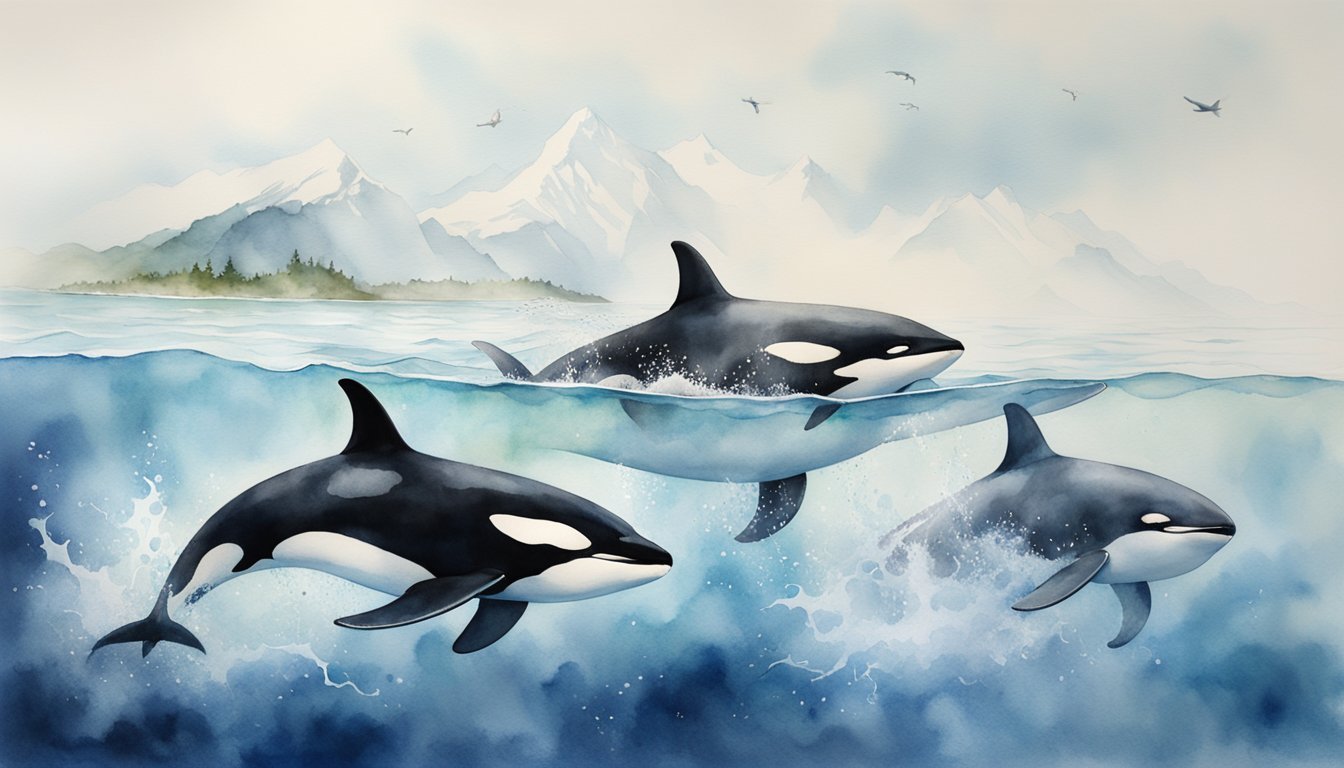Interactions Between Orcas and Great White Sharks
The relationship between orcas and great white sharks is a mesmerizing display of interspecies interaction, marked by the occurrence of hunting and predation, often shifting the balance within oceanic ecosystems.
Predatory Behavior and Attacks
Orcas have been documented engaging in coordinated attacks to prey on great white sharks. These attacks sometimes result in the death of sharks, as orcas target the nutrient-rich liver as a primary source of food. Off the coast of South Africa, particularly around Mossel Bay, Gansbaai, and the Western Cape, such predation events not only demonstrate the orcas’ role as an apex predator but also implicate significant impacts on the local marine ecosystem.
Scientific Studies and Observations
Researchers studying these fascinating dynamics have gathered evidence through various methods including acoustic tags and direct observations. A notable study near the Farallon Islands provided insights into how the presence of orcas can alter great white sharks’ behavior, even causing them to abandon their hunting grounds. Marine biologists have noted that these interactions are important in understanding the complexities of the ocean’s food chain and the role each marine mammal plays within it.
Conservation and Ecological Impact

Interactions between orcas and great white sharks are leading to important changes in marine ecosystems. Researchers are studying these dynamics to understand the broader ecological impact, particularly on shark populations and human activities related to whale watching.
Orcas’ Influence on Shark Populations
Orcas, also known as killer whales, have been observed preying on great white sharks. This predation can affect the shark populations in significant ways. Marine biologist Simon Elwen noted the appearance of white shark carcasses, suggesting that orcas can indeed have a considerable impact on shark mortality rates. Additionally, some research shows changes in shark behavior in areas where orcas are present. In places like California’s Monterey Bay, evidence indicates that sharks may vacate their habitats to avoid these highly intelligent predators, an apex predator themselves.
As whales, orcas play a key role in their environments, not only affecting shark populations but potentially other species within the food web such as seals, sea lions, and smaller marine creatures. The loss of great white sharks from certain areas, sometimes driven off by orcas, can lead to a trophic cascade, where shifts in predator and prey dynamics cause ripples throughout the ecosystem.
Whale Watching and Human Interactions
The presence of orcas and great white sharks influences coastal tourism, invoking opportunities and challenges for whale watching operations. In regions like South Africa’s False Bay and parts of Australia, orcas hunting white sharks can draw significant interest from the public. Researchers from the Marine Dynamics Academy indicate that such rare behaviors, observed more frequently, could become draws for eco-tourism if managed responsibly.
However, marine tourism, including whale watching, must be mindful to minimize disturbance to these marine mammals. Orcas are social animals with complex behaviors, and interfering with their natural activities, like group hunting, can have negative consequences. Ensuring that human interactions are conducted with respect for the animals and their habitat is essential for the longevity of both the wildlife and the tourism industry that relies on them.

